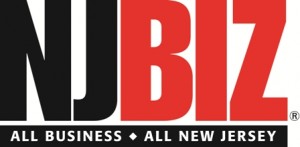![]()
To the Editor:
One of the upsides of the strife from Hurricane Irene is watching people band together and extend a hand to those in need. Ten years after 9/11, we still clearly remember hardened New Yorkers pitching in to help their brothers and sisters in a time of extreme need.
However remarkable this effort, in the face of tragedy, we often question why we do not always act for the benefit of our community. For many of us, the answer is straightforward: we are committed to serving our families and loved ones first. Events such as 9/11 and recent natural disasters remind us how fortunate we are and inspire us to serve others in their time of need.
Following Hurricane Irene, sharing refrigerators, showers, and washing machines became the norm for those possessing electric power and running water. One of my dear friends, on a moment’s notice, hauled a generator to my house to assist and, when power was received, we passed along his kindness to our friends by making available power, water, and accommodations for the next seven days.
While the outpouring of assistance is commendable in a time of crisis, there are those who make it their life’s mission, in more ordinary times, to help others in their day-to-day struggles. One institution that stands out as a hallmark for serving others, at all times is the Somerset Hills YMCA.
Throughout the power loss the Y was a welcomed retreat for those without power or water. Yes, to take it a step further, on Labor Day, when the Y is typically closed, employees and volunteers joined together so that anyone in the community would still have the privilege of a warm shower, and electric power. Some may view this as exceptional, but those more intimately affiliated with the Y know that these behaviors are typical even in normal periods. Yes, the Y is a venue to socialize and to be physically active, but that is merely an ancillary benefit of its highest mission.
The Y is first and foremost a charitable institution serving the community irrespective of its need. The elderly, the poor and the financially strapped young families who need assistance receive services from the Y. The YMCA gives nearly to $1 million in free services each year, to those in need in the Somerset Hills community.
This element of charity, which attracts so many of us to our churches, temples, and to the Y, is also the reason why my wife and I have committed ourselves to aiding the works of the Y. The Y is the one institution in our community that transcends all cultural and religious boundaries, and its Board of Directors is comprised of individuals from all walks of life. Everyone feels at home at the “Y.”
The Y reminds us that there is goodness in focusing on the needs of the community, certainly in times of extreme strife, but also in times when people’s needs are a private matter particularly in this ostensibly unceasing economic crisis. While each of us are busy with our daily routines and obligations, there are always people “just around the corner” in need… they can find a welcoming home at the Y.
John O. McManus
(Mr. McManus is a Board Member of the Somerset Hills YMCA)

 We’re proud to announce that New York Enterprise Report has chosen McManus & Associates as one of the
We’re proud to announce that New York Enterprise Report has chosen McManus & Associates as one of the 

 ⟩
⟩ ⟩
⟩ ⟩
⟩ ⟩
⟩ ⟩
⟩ ⟩
⟩